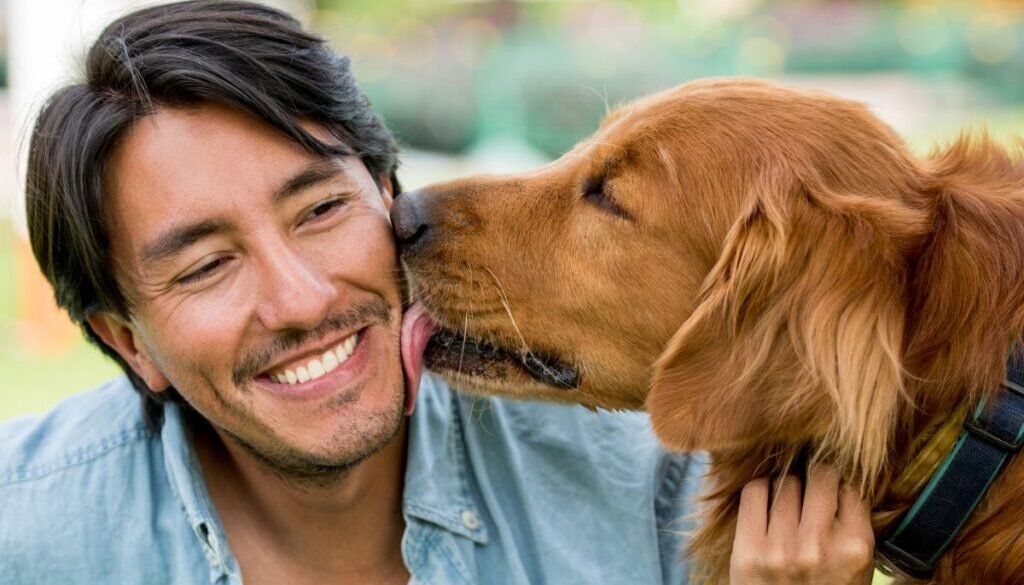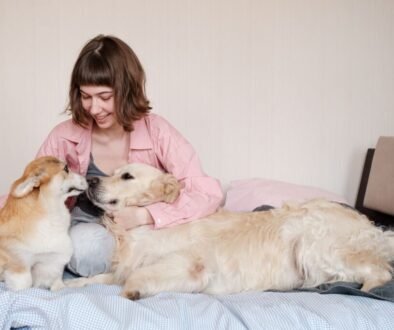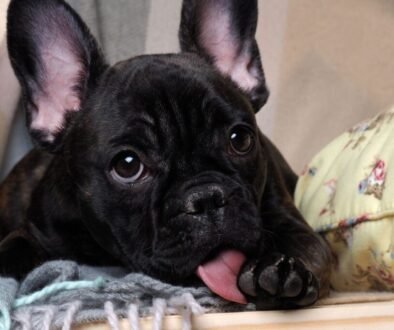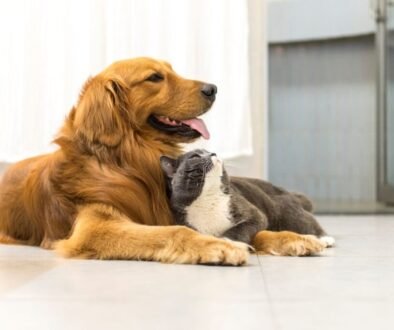Why Do Dogs Lick People? The Surprising Reasons Behind It
Why Does Your Dog Love to Lick You?
Have you ever wondered why your dog can’t seem to keep their tongue to themselves? Whether it’s a gentle lick on your hand or an enthusiastic face wash, dogs have a peculiar habit of licking their humans. But what’s behind this slobbery behavior? Is it love, curiosity, or something else entirely?
Dogs lick for a variety of reasons, and understanding why can help you build a stronger bond with your furry friend. In this article, we’ll dive into the science, psychology, and health implications of dog licking. By the end, you’ll not only know why your dog licks you but also how to manage it if it becomes too much.
“Dogs do speak, but only to those who know how to listen.” – Orhan Pamuk
So, let’s get started and uncover the secrets behind your pup’s licks!
The Science Behind Dog Licking
Instincts from Puppyhood
From the moment they’re born, puppies are licked by their mothers. This behavior serves several purposes:
- Cleaning: Mother dogs lick their pups to keep them clean.
- Stimulation: Licking helps stimulate breathing and digestion in newborn puppies.
- Bonding: It strengthens the bond between the mother and her litter.
As puppies grow, they mimic this behavior, licking their littermates and humans as a way to show affection and communicate.
Taste and Smell: A Dog’s Superpowers

Dogs experience the world through their noses and tongues. Their sense of smell is up to 10,000 times more powerful than ours, and their taste buds, while fewer in number, are highly sensitive. When your dog licks you, they’re gathering information about you—what you ate, where you’ve been, and even how you’re feeling.
Fun Fact: Dogs have a special organ called the Jacobson’s organ (or vomeronasal organ) that allows them to detect pheromones and chemical signals. This might explain why they’re so interested in licking salty skin or sniffing (and licking) your shoes!
What Your Dog Is Trying to Tell You

Affection and Bonding
One of the most common reasons dogs lick is to show love. When your dog licks you, they’re essentially giving you a “kiss.” This behavior releases endorphins in their brain, making them feel happy and relaxed. It’s their way of saying, “You’re part of my pack, and I care about you.”
Attention-Seeking Behavior
Dogs are smart creatures. If they notice that licking gets your attention—whether it’s a laugh, a pat, or even a gentle scolding—they’ll keep doing it. It’s their way of saying, “Hey, look at me!”
Stress and Anxiety Signals
Excessive licking can sometimes be a sign of stress or anxiety. For example, if your dog licks themselves, you, or objects obsessively, it might be a coping mechanism. Pay attention to other signs of stress, such as pacing, whining, or destructive behavior. If you notice these signs, consider consulting a vet or a professional dog behaviorist to address the underlying cause.
Health Implications of Dog Licking
Is Dog Licking Safe for Humans?
For the most part, dog licking is harmless. However, dogs can carry bacteria like Salmonella or E. coli in their saliva, which can be transmitted to humans. While the risk is low, it’s a good idea to wash your hands after a slobbery session, especially before eating. Additionally, avoid letting your dog lick open wounds, as this could introduce bacteria and lead to infection.
Did You Know? A study published in the journal PLOS ONE found that dog saliva contains enzymes that can help heal wounds. This might explain why dogs instinctively lick their own injuries—and sometimes yours! It’s important to note that human wounds should be treated with proper medical care to avoid infection.
When Licking Becomes a Problem
While occasional licking is normal, excessive licking can indicate underlying issues, such as:
- Allergies: Dogs with skin allergies may lick to soothe irritation.
- Pain: Licking a specific area could signal an injury or discomfort.
- Boredom: A lack of mental or physical stimulation can lead to compulsive licking.
If your dog’s licking seems excessive or out of character, it’s worth investigating further.
How to Manage Excessive Licking
Training Tips
If your dog’s licking is becoming a nuisance, try these strategies:
- Redirect Their Attention: Offer a toy or treat to distract them.
- Teach the “No Lick” Command: Use positive reinforcement to train your dog to stop licking on command.
- Provide Mental Stimulation: Puzzle toys and interactive games can keep your dog entertained and reduce boredom-related licking.
When to Consult a Vet
If your dog’s licking is accompanied by other symptoms like redness, swelling, or changes in behavior, it’s time to consult a vet. They can rule out medical issues and recommend appropriate treatment.
Take our quiz: Is your dog’s licking behavior normal or excessive?
Questions and Answers:
- How often does your dog lick you or themselves?
- A. Occasionally, just a few licks here and there.
- B. Frequently, but it doesn’t seem obsessive.
- C. Constantly—it’s hard to get them to stop!
- Does your dog lick specific areas (e.g., paws, furniture, or your face)?
- A. No, they lick randomly.
- B. Yes, but only occasionally.
- C. Yes, and they focus on one area obsessively.
- Have you noticed any physical signs (e.g., redness, sores, or hair loss) where your dog licks?
- A. No, everything looks normal.
- B. A little redness, but nothing severe.
- C. Yes, there are noticeable sores or hair loss.
- Does your dog seem anxious or stressed when they’re not licking?
- A. No, they’re pretty relaxed.
- B. Sometimes, but it’s not a big deal.
- C. Yes, they seem anxious or restless.
Results:
- Mostly A’s: Your dog’s licking behavior is normal! They’re just showing affection or exploring their world.
- Mostly B’s: Your dog’s licking might be a bit excessive. Keep an eye on it and consider redirecting their behavior with toys or training.
- Mostly C’s: Your dog’s licking could indicate an underlying issue, such as stress, allergies, or pain. It’s a good idea to consult your vet for advice.
Conclusion: Embracing the Lick
Dogs lick for many reasons—affection, communication, curiosity, and even stress. While it’s usually a harmless (and endearing) behavior, it’s important to recognize when it might signal a deeper issue. By understanding why your dog licks and how to manage it, you can ensure a happy, healthy relationship with your furry friend.
So, the next time your dog plants a slobbery kiss on your face, remember: it’s their way of saying, “I love you.” And who could resist that?
FAQ Section
- Why does my dog lick my face so much?
Dogs often lick faces to show affection or seek attention. It’s also a way for them to gather information about you through taste and smell. - Is it safe to let my dog lick my wounds?
While dog saliva contains enzymes that can promote healing, it also carries bacteria that could cause infection. It’s best to avoid letting your dog lick open wounds. - How can I stop my dog from licking excessively?
Redirect their attention, provide mental stimulation, and consider consulting a vet if the behavior persists. - Why does my dog lick the air or objects?
Air licking can be a sign of stress, nausea, or a compulsive behavior. If it happens frequently, consult your vet. - Do all dogs lick?
While most dogs lick to some extent, the frequency and intensity can vary based on breed, personality, and upbringing.
Now that you’re armed with all this knowledge, go ahead and enjoy those puppy kisses—just maybe keep a towel handy! 🐾



